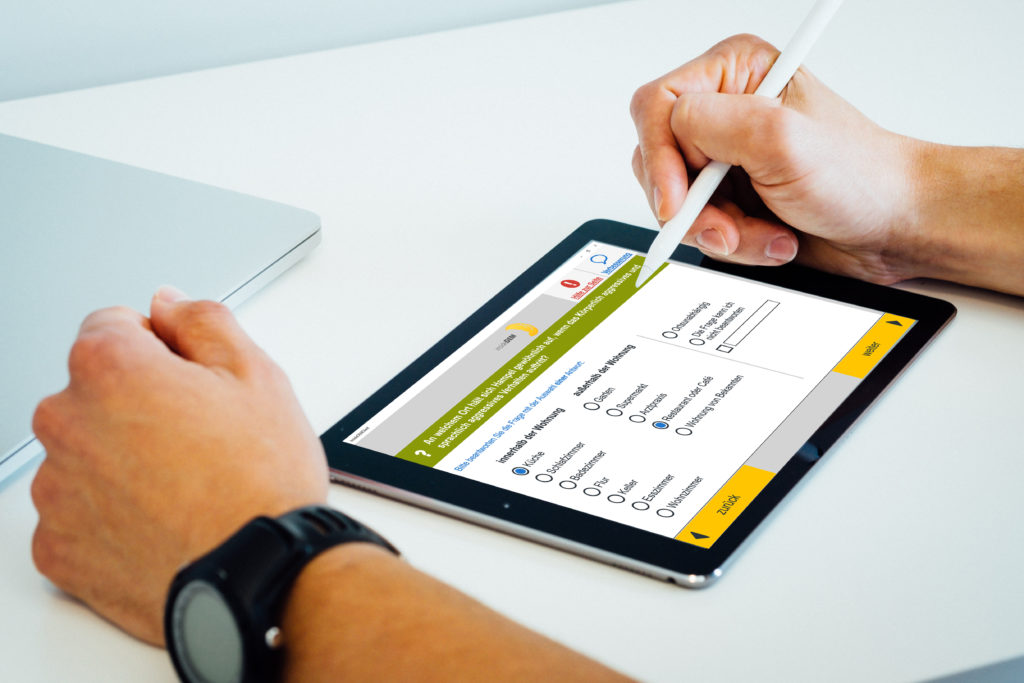
insideDEM
Up to 90% of people with dementia (PwD) develop so-called challenging behaviors (emotional or physical), such as wandering, apathy, beating, crying or running away. Consequences are high burdens and impairments in quality of life for the PwD as well as for the caring relatives. Providing highly customized guidelines (interventions) could be a proper solution. To provide such a solution for relatives helping them to deal with challenging behaviors is one of the main aims of the insideDEM project.
Dedicated questionnaires and sensor-based activity-detection are being evaluated and interpreted to provide suited interventions to caregiving relatives. The results should be integrated in a care process between informal (relatives) and professional caregivers. The identification and establishment of such integrated care processes is another topic of the insideDEM project. A user-centered design is used to develop the user interface which should be presented on tablet connected to a dedicated home server for data and backend processing.
All this is made possible through the interdisciplinary cooperation between the partners involved in research and industry:
- DZNE (German Center for Neurodegenerative Diseases e.V.) Witten
- DZNE Rostock / Greifswald
- University of Rostock
- Städtische Seniorenheime Krefeld
- Euregon AG from Augsburg
- University of Applied Sciences in Duesseldorf.
Project Targets
- Improving quality of care for PwD by providing an established assessment to caring relatives within a knowledge-based assistive system
- Simplyfied, sensor-based recognition of challenging behaviours of PwD
- Efficient integration of decision-making assistive technologies in care processes between professional and informal caregivers with continous assistances from data aquisition to selection of adequate interventions
- Provision of an exemplary value- and useroriented process model for developing socio-technical solutions for PwD by direct participation of affected people
- Design of a flexible, modular, distributed system architecture
- Analysis of the provided assistive technologies by means of ethical and socio-legal implications
Coordination: Alina Huldtgren,Patrick Pogscheba, Fabian Mertl,
Co-financed by the Federal Ministry of Education and Research
For more information, see InsideDem project website.